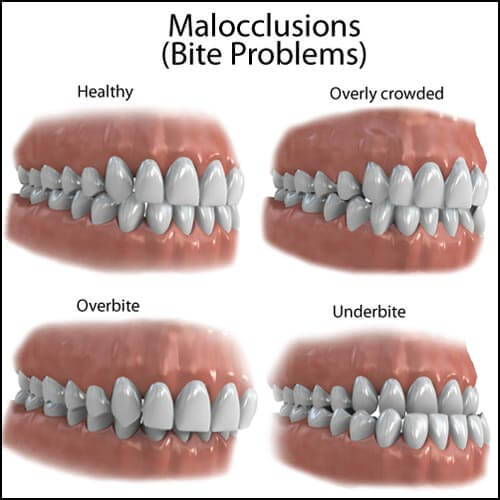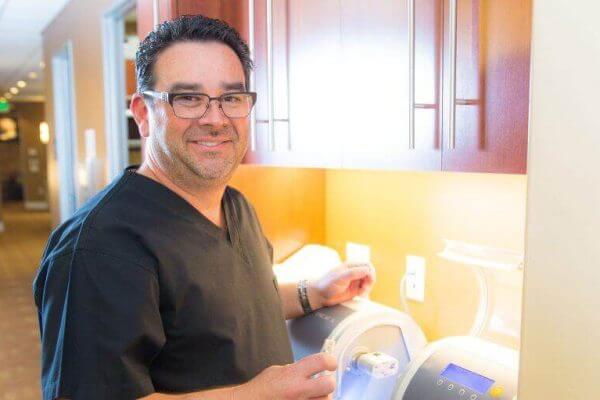Get Straighter Teeth with Invisalign
Crooked teeth can cause social and self-esteem issues, especially when you have a severe form of cross bite. This is a type of malocclusion where a single tooth or many teeth are positioned closer to the inner cheek or the tongue than normal, in comparison to its antagonist tooth. This is a lateral misalignment of a dental arch that can sometimes lead to a skewed looking face.
Dr. Hauser always tells his patients that getting straighter teeth can prevent skeletomuscular conditions caused by malocclusion. He also tells them that early treatment and preventive measures can be quite effective.
Just Call (951) 244-9495 or Go Online and Schedule an Appointment at Lakefront Family Dentistry.
Understanding the Condition
There are many different classifications of this dental condition. It can affect anterior or posterior teeth and be bilateral or unilateral as well. In most cases, it is caused by genetics. Therefore, if both parents show signs of having this form of malocclusion, there is a larger possibility of them passing this on to their offspring.
Oral habits can also cause crossbite. Prolonged thumb sucking is a common cause of anterior crossbite, followed closely by severe tongue thrusting. Other factors include damaged jaws, missing teeth and crowding (usually caused by large teeth and small jaws). If it is left untreated, it may affect jaw growth and development.
Dr. Hauser to the Rescue
Most dentists will try to persuade the patient to go for regular braces. However, this may not be feasible for most patients, especially those who dread how braces look or are sensitive to any of the components. Luckily, not all dentists advocate the use of outdated appliances for this specific condition.
Dr. Hauser of Lakefront Family Dentistry is a respected CEREC specialist. However, he also practices orthodontics, specifically Invisalign, which is a better option than traditional braces for many cases. With over 20 years of dental practice experience, he has treated numerous cases of malocclusion and is happy to show clients the results of his hard work with a portfolio of cases in his office, as well as some shown on this website.
Why Invisalign?
Braces look sturdy and resilient next to Invisalign. Although the wafer thin aligners may look weak and unable to resist the tooth forces, their flexibility and strength make them better than braces for the right type of patient. Dr. Hauser tells each patient that it provides a slow, yet steady force that is gentler on the periodontal ligaments and other supporting structures.
It also is removable, which allows patients to practice better oral hygiene. In the past, many dentists would refuse to give people with poor oral hygiene orthodontic treatment. This was mainly because one had to brush carefully so as not to dislodge the wires or brackets.
Dr. Hauser prefers Invisalign over orthodontic appliances because it gives patients the freedom to enjoy various types of food, too, which they would be unable to eat if they wore traditional braces. The clear and thin aligners are also less likely to cause embarrassment, especially for adults who want straighter teeth.
They are also made of hypoallergenic material to prevent patients from developing ulcers, rashes and boils on their inner cheeks, which are common in people who wear braces. Therefore, they are superior to traditional orthodontic appliances.
People who suffer from malocclusions, especially cross bite, should consider Invisalign instead of braces. They are comfortable and aesthetically appealing as well. Schedule an appointment with Dr. Hauser today. For more information, please call Lakefront Family Dentistry at (951) 244-9495.




